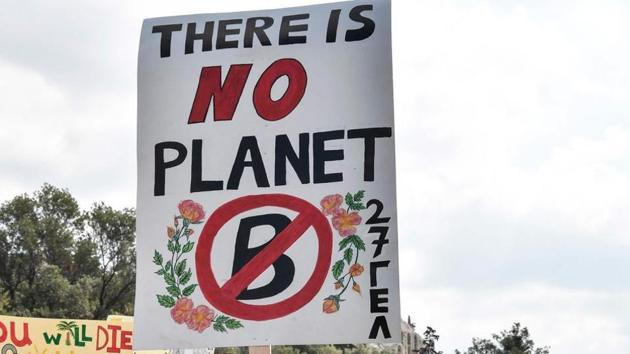Bonn climate meeting fails to address threat of 1.5 degree C warming
A scientific and technological body of the United Nations Framework on Climate Change (UNFCCC) took note of Saudi Arabia’s dissent and concluded that its engagement with the 1.5 degree is complete.
Intergovernmental Panel on Climate Change (IPCC’s) “Global Warming of 1.5 degree C” report was once again debated at the Bonn climate meeting and its science allegedly questioned by Saudi Arabia.

A scientific and technological body of the United Nations Framework on Climate Change (UNFCCC) took note of Saudi Arabia’s dissent and concluded that its engagement with the 1.5 degree is complete. This means the science behind IPCC’s 1.5 degree report may not inform decision making in future.
UNFCCC’s subsidiary body for scientific and technological advice in their draft conclusion said: “the subsidiary body has noted the views expressed on how to strengthen scientific knowledge on global warming of 1.5 °C and agreed that its work under this agenda sub-item has been completed.”
Civil society groups at Bonn said Saudi Arabia allegedly tried to stall the process of involving the 1.5 degree report in formal negotiations.
“It is unconscionable that the relevance of climate science is put under the spotlight by Saudi Arabia and some other countries at a time when all governments must be responding to the climate emergency and using the IPCC 1.5 C Report to plan for a zero-carbon future. It is important that more countries defend the IPCC reports and are outspoken in their condemnation of those making a concerted effort to undermine the best available science and the Paris Agreement,” a press release by Climate Action Network said.
While the draft negotiating text on June 24 said that it would recommend workshops to be organised at negotiations in December 2019 and June 2020 for better understanding of global warming impacts of 1.5 degree C and emission pathways needed for keeping global warming under 1.5 degree C, the draft text on June 27 said none of this. The concluding draft only expressed its appreciation and gratitude to the IPCC.
“Here in Bonn, there wasn’t much ambition to be found. While some headway was made on several technical topics, sharp political differences remain on key issues such as carbon markets, ramping up finance to help developing countries cope with climate impacts, and the role of science in informing policymaker understanding of the urgent need for climate action,” said a statement by Alden Meyer from the Union of Concerned Scientists.
The 1.5 degree report had said that countries will have to make unprecedented transitions in all sectors to avoid devastating impacts of climate change and keep global warming within 1.5degrees over pre-industrial levels. It said that net zero emissions of carbon dioxide must reach zero by 2050. At the current rate of emissions, the world will reach 1.5°C warming by between 2030 and 2052.
For India, the consequences of failing to keep warming within 1.5 degrees, would include severe heat-stress in mega cities along with high air pollution levels; sea level rise induced saltwater intrusion in coastal areas and increased vulnerability to disasters in high mountain eco-systems, IPCC authors had said.
The silver lining at Bonn is that the subsidiary group of UNFCCC has decided to revisit and refine the “loss and damage” mechanism. Loss and damage refers to impacts due to sea level rise, cyclones and irreversible impacts like large scale bleaching of corals.
The terms of reference for review of the Warsaw Mechanism for Loss and Damage, a mechanism which was agreed on in 2013 but didn’t deliver on, have been finalised at Bonn.
The review will also consider ways to compensate countries vulnerable to climate change through adequate financing from developed countries.
“Mozambique (which faced cyclone Idai in March) needs 3.2 billion dollars for rehabilitation and reconstruction what they are getting is millions. At 1 degree C warming we are not able to help people build their economies. Developed countries have deliberately bullied developing countries and not made any progress on climate finance. This year provides an opportunity by revisiting the Warsaw mechanism,” said Harjeet Singh, global lead on climate change at ActionAid.






